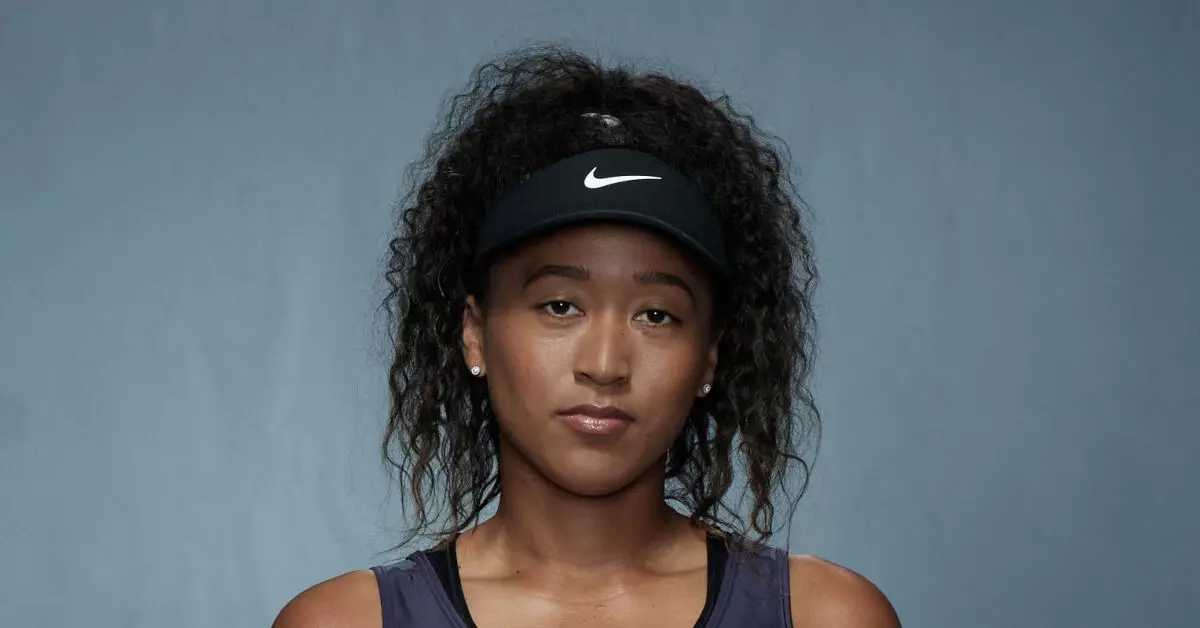Tennis
Why sports need more role models like Naomi Osaka?
A 23-year-old tennis star, Naomi Osaka, is a champion on and off the court and we need more role models like her

Tennis star Naomi Osaka
"I feel we Indians are a bit more tolerant than overseas. I've played with a lot of Englishmen, Australians, West Indians; they just give up on mental health,"
When the world of sports was stunned by a 23-year-old Naomi Osaka's decision to withdraw from the French Open citing mental health concerns, I could only hark back to the remark above made by one of the most influential personalities in the Indian sports ecosystem right now — BCCI President Sourav Ganguly. The competitive nature of arguably one of the finest former captains of the Indian cricket team seemed to have got better of him when he chose to draw a 'comparison' between mental health conditions of players. The statement adhered to the harsh reality that mental health conditions are taken lightly in India.
On the contrary, when Osaka, one of the most famous representatives of the sportsverse, makes a severe case of the same problem and helps us reflect with utmost honesty, how can we not support her?
We admire our sporting heroes for their fierce techniques of cultivating their physical capabilities and almost forget the preparation that goes inside their minds. Osaka's withdrawal from the shores of Roland Garros has precisely opened the gates for sports bodies to look beyond the status quo and make a note on mental health in an environment that only thrives on competition.
Osaka acknowledged her problem and felt the need to take care of it. The honesty of speaking up about a stigmatised concept needs courage. Despite being contractually obliged to "do the press," the four-time grand slam winner chose her health over obligations without batting an eye which culminated in paying fines and receiving threats of being disqualified. Inevitably, an eruption of responses followed that saw her exit one of the most prestigious tournaments marked on the tennis calendar.
Osaka can live with that. She chose a side as she has always done despite drawing criticism from every corner. At just 23, Osaka has become one of the mightiest forces to have stand eye-to-eye with authoritarianism confidently and speak up for issues that are pushed under the carpet. Osaka never backed of speaking up her mind. A self-diagnosed 'introvert', she vividly described on her very personal post on social media about her struggle, her bouts of depression since she defeated Serena Williams in the dramatic final of the 2018 U.S. Open.
Almost every player is being asked today about their mental conditioning that could have taken a toll amid the pandemic. Osaka has mentioned her depression and anxiety that are crippling and horrible conditions that can bury the sufferer in a blanket of blackness. It's something impossible to understand unless individual experiences the same. Indian cricketer Veda Krishnamurthy, who lost her sister and mother due to coronavirus last month spoke about the mental aspect of dealing with a health crisis and the ensuing tragedy of such a magnitude, Krishnamurthy said her mother and sister also suffered from anxiety while battling the illness. "Mental strength is important. My oldest sister, Vatsala, had panic attacks before she passed away from COVID," the 28-year-old said.
From the very beginning, Naomi's confidence was visible when she carried seven different masks to U.S. open 2020, each featuring the name of an African American victim killed by the police in the United States.
While all her contemporaries focused on the game, Naomi had her eyes set on two things: one on the court and the other to play her part in fighting for justice for the innocent victims of police brutality.
It was the second thought that forced heads to turn and make a note of her act, thereby leading the tournament to pause play for a day as a symbol of solidarity against racial inequality. Many of the victim's family members praised Naomi for her spirit and action.
For a long, women's tennis has sought a champion who could go on win titles and not just settle for a one-off success. Indeed, such a feat looked possible when Serena Williams made winning grand slams a habit, but it couldn't be seen from someone else until Osaka came into the picture. With four grand slams already under her belt, Osaka has made remarkable progress for women's tennis with her mental fortitude, a testament of which could be seen in the Australian Open 2020. She came through a stiff draw after being two match points down, defeating Williams in the semis, followed by a summit win against one of the fiercest competitors Jennifer Brady.
Why we need more like Osaka?
Her stances both on and off the field make her one of the most prominent role models of sports who is true to her game, her emotions, and opinions — a combination that often misses among Indian sportspersons. We barely see sports icons speak their minds on issues that matter. Leaving a few, the champions on-field hardly believe in championing social justice causes off the field and are dictated by their agents, by the government, and by organisations. We should not forget the players who are making strides off the field, forming opinions, speaking up, and showing their defiance to the 'stick to sport' brigade.
